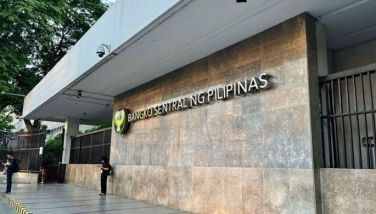NFA steps up drive vs grains trade violators
MANILA, Philippines - The National Food Authority (NFA) is beefing up its capability to prevent grains traders from taking undue advantage during the lean months of July to September.
NFA Administrator Jessup Navarro said yesterday that there has been an increase in grains trading violations, prompting the grains agency to continuously check the flow of government rice in the market and strictly monitor accredited rice outlets including the Tindahan Natin (TN).
Navarro said regular monitoring of rice outlets would be part of the agency’s operational plan for the next four months.
He said the NFA would implement the “One-strike” policy against any TN outlet. This means that TN outlets caught violating trading rules and regulations would be blacklisted and face automatic cancellation of their accreditation.
Navarro warned that “there will be no replacement or establishment of additional TN outlets.”
He said the same provision applies to all accredited outlets.
“Being accredited to retail NFA rice is only a privilege and the agency has the right to cancel or terminate their accreditation if warranted,” Navarro said.
At present, there are 14,581 TN outlets in operation nationwide located mostly in the highly depressed areas in the National Capital Region (NCR) and in provinces that are vulnerable to hunger.
The TN outlets comprise the majority of existing 23,800 active market outlets of the agency.
The NFA Council, the policy making body of the agency, meanwhile, wants all TN outlets to distribute 100 percent iron fortified rice (IFR) which is part of the Arroyo administration’s plan to eradicate malnutrition in the country.
TN outlets sell IFR at P18.25 per kg exclusively for families with family access cards issued by the DSWD in the NCR and those listed in the TN rice allocation ledger in the provinces.
The NFA is increasing its rice distribution target for the lean months to stabilize the supply and price of rice.
From a 4.5-million bag rice distribution target in June, the NFA is increasing the volume to more than five million bags for the months of July and August.
According to Navarro, an upward trend in the price of rice and most of the violations in grains trading occur during the lean months when there is no palay production.
Among the most common rice trading violations especially during the lean months are diversion of NFA stocks, unreasonable depletion of stocks, refusal to sell NFA rice, selling of commercial rice alongside government stocks and engaging in the grains business without valid license from the NFA.
The low supply and additional expenses for grains drying to maintain quality usually push up the price of rice during the lean period. – Marianne Go
- Latest
- Trending




























